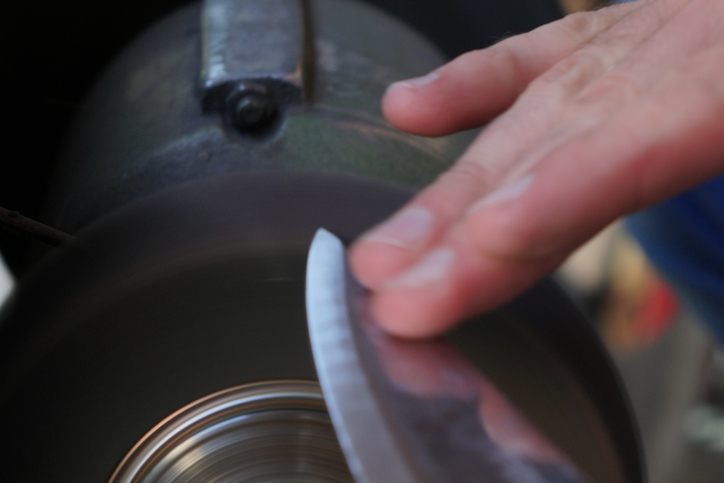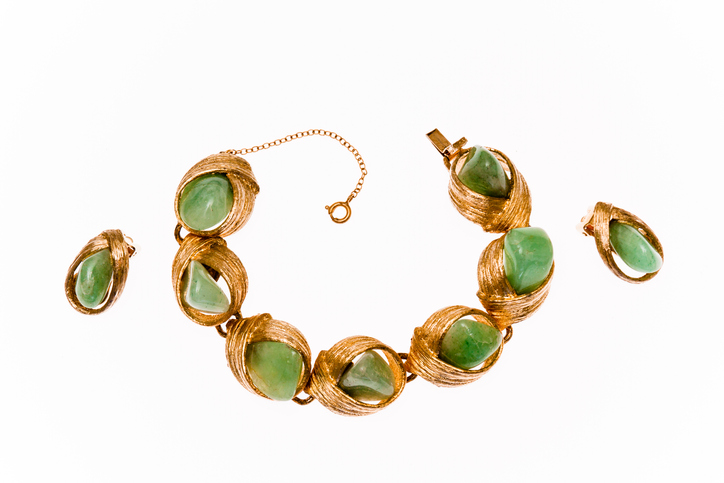Tao Te Ching Chapter Nine: The Beauty of ‘Enough’
In Chapter Nine of the Tao Te Ching, Lao Tzu teaches us the delicate art of restraint and knowing to stop when we have enough.
He speaks to lessons of humility. There is a cord of truth through his message that runs deep. When we continually seek more and more, we fall out of alignment. And we lose the precious peace that comes from knowing we have enough and that we are enough.
Let’s take a look at Tao Te Ching Chapter Nine:
From Dr. Wayne Dyer’s Change, Your Thoughts Change Your Life:
9th Verse
To keep on filling
is not as good as stopping.
Overfilled, the cupped hands drip,
better to stop pouring.
Sharpen a blade too much
and its edge will soon be lost.
Fill your house with jade and gold
and it brings insecurity.
Puff yourself with honor and pride
and no one can save you from a fall.
Retire when the work is done;
this is the way of heaven.”
There are so many lessons to learn from this text. Here are some that resonate with me:

Know how to appreciate the natural abundance around you without wanting more.
“The Tao has the capability to generate everything in amounts that would stupefy an observer, yet its gentle humility seems to know when there are enough trees, flowers, bees, hippos, and every other living thing.” – Dr. Wayne Dyer, Change Your Thoughts Change Your Life.
We’ve learned that the Tao has the incredible ability to create more and more, yet it does stop.
We can aspire to be the very same way. To look out at a beautiful scene and to appreciate it as it is – without wanting more.
We can choose to appreciate a garden full of flowers simply as it is. We can understand the harmony found in the variety of flowers in view.
But, if flowers were growing everywhere, we would find them annoying. They would lose their ethereal quality that delights us.

The Tao Te Ching Chapter Nine reminds us that too much is too much.
I love Lao Tzu’s example of sharpening the blade, or sword’s edge, to the precise level needed.
Unfortunately, we’re often conditioned to believe the sharper the knife, the better!
Yet, as Lao Tzu points out, there is a critical point of ‘enough.’ If we keep sharpening a blade beyond that crucial point, we will weaken it.
Seeking that moment of ‘enough’ is central to Chapter Nine of the Tao Te Ching.

Pride and arrogance lead to disappointment and unhappiness.
Running along the hamster wheel, we seek to accomplish more and more. We believe that’s the only path that will guarantee the state of permanent happiness we so desperately seek.
Unfortunately, this can lead to a state of overwhelming self-focus. And this is certain to lead to unhappiness.
We create trouble for ourselves when we unknowingly head down this path.
Lao Tzu again reminds us to hold ourselves in our center in this message. Bragging and arrogance will yield undesirable results.

Excessive riches, like gold and jade, breed insecurity.
We work diligently to acquire more wealth, believing that gold and jade fill a void deep within ourselves.
We think that we’ll be immune to other challenges if we possess more wealth and fortune.
Lao Tzu suggests there is a flip side to this. We may find ourselves experiencing new insecurities. The possession of wealth doesn’t promise what we’d hope it would.
We may become afraid of losing these items. And we wonder if people are drawn to us or our belongings.

In Chapter Nine of the Tao Te Ching, Lao Tzu suggests that pursuing fame also has a dark side.
Many people want to be famous. Our society has, in many ways, created this desire.
But we’ve forgotten the challenges that come with fame and external power. Both ignite feelings of envy in those around you.
In some ways, it’s a trade-off. You receive the attention and recognition you may have always desired, yet you also give up your sense of peace and serenity.

Chapter Nine reminds us to return our focus on enjoying the simple task at hand.
“Seek the pleasure in what you’re doing rather than how it might ultimately benefit you.” – Dr. Wayne Dyer, Change Your Mind Change Your Life.
I remember Eckhart Tolle describing ‘presence’ as not just the state of achieving bliss while seated in meditation but also in doing even simple tasks with presence.
He says, “Don’t wait to be successful at some future point. Have a successful relationship with the present moment and be fully present in whatever you are doing. That is a success.”
We need to redefine our definition of success. It’s found in the moments of alignment we experience throughout our day.

Verse Nine of the Tao Te Ching urges us to remember that you are enough – just as you are.
With the planet’s frantic energy, it’s easy to get caught up in wanting more.
We’re inundated with excess. We see people on television (The Kardashians, for example) who have so much. So, we mistakenly believe we need more, too.
Yet, on closer look, excess does not bring happiness.
We need to look deeper.
At our core, we are already enough.

Your peace of mind is an inner state.
No amount of status, wealth, or external validation can fill the void that we feel inside.
Instead, consider that spending a simple day at home, reading a book through a sunlit window, is living richly.
Everything we experience comes from the inside. Our thoughts and emotions are all there. We are enough, and we have enough to live beautifully.

How can we live within a state of ‘enough-ness’?
Here are a few things I will try to do for the next few weeks to practice. Maybe you can join me!
When looking out at nature, appreciate the perfection of everything as it is now. Mindfully notice when you find yourself wanting more, or wishing things were different and choose to focus instead on the simple beauty of what you see.
Witness your focus on wanting more material items. Ask yourself, ‘Where is this coming from? What happiness will this bring into my life?’
When you find yourself in a situation where you may feel compelled to brag or boast, stop yourself and choose the path of humility. Witness if that choice finds you more connected to a sense of inner peace.
When you find yourself in a situation where you might typically over-indulge in some way, choose to stop. Instead, say to yourself, ‘Enough is enough. I feel perfectly content, and I don’t need more.’ Notice if you feel more content doing this.






Leave a Reply
Want to join the discussion?Feel free to contribute!